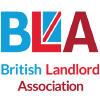Understanding Rent Control In Wales
Rent controls have sparked heated debates in recent years across various regions, including Wales.
As property experts, we firmly advocate against the implementation of rent controls in Wales, and in this article, we’ll delve into why.
Economic Implications
Rent controls may seem like a solution to address housing affordability issues, but they can harm the economy.
Artificially limiting rental prices disrupts market equilibrium, leading to supply and demand dynamics distortions.
Landlords may be disincentivised to maintain or invest in their properties, resulting in declining housing quality.
Additionally, rent controls can deter new investment in the rental market, exacerbating housing shortages and decreasing housing affordability in the long term.
Impact on Housing Supply
One of the most significant concerns associated with rent controls is their adverse impact on housing supply.
When rental prices are capped below market rates, landlords may struggle to cover their costs, decreasing the supply of rental properties.
This, in turn, exacerbates housing shortages and contributes to increased competition among tenants, ultimately driving up prices in the unregulated segment of the market.
Moreover, rent controls can deter developers from constructing new rental properties, further constraining the supply and exacerbating the housing crisis.
Market Distortion
Rent controls introduce significant distortions into the housing market, disrupting the natural balance of supply and demand.
When rental prices are artificially capped, landlords may use alternative means to offset their losses, such as reducing maintenance or amenities or even converting rental properties to alternative uses.
This undermines the quality of housing stock and reduces the overall availability of rental units, exacerbating housing shortages and affordability issues.
Rent Control: Tenant Disadvantages
Contrary to popular belief, rent controls may only sometimes benefit tenants as intended. While initial rental savings may seem appealing, the long-term consequences can be detrimental.
Rent controls often lead to a misallocation of housing resources, with long-term tenants benefiting at the expense of newcomers.
Additionally, landlords may become more selective in choosing tenants, leading to discrimination and reduced housing options for vulnerable populations.
Furthermore, rent controls can stifle mobility, as tenants may be reluctant to relocate because they fear losing their affordable rental rates.
Conclusion
In conclusion, there are more viable solutions to address housing affordability issues in Wales than rent controls.
Instead of artificially capping rental prices, policymakers should implement measures that promote housing development, increase supply, and improve affordability through market-based solutions.
Addressing the root causes of housing shortages and affordability challenges can create a more sustainable and equitable housing market for all stakeholders.
Proposed Solutions
Instead of resorting to rent controls, policymakers in Wales can consider implementing a range of alternative solutions to address housing affordability challenges:
- Investment Incentives: Encourage private investment in affordable housing through tax incentives, grants, or subsidies. By providing financial incentives to developers and landlords, the government can stimulate the construction of new rental properties and improve housing affordability without distorting the market.
- Streamlined Planning Processes: Simplify and expedite new housing development planning and approval processes. Delays in planning approvals can significantly hinder the construction of new rental units, exacerbating housing shortages and affordability issues. By streamlining these processes, policymakers can facilitate the timely delivery of new housing stock to meet growing demand.
- Public-Private Partnerships: Foster collaborations between the public and private sectors to develop affordable housing projects. Public-private partnerships can leverage the resources and expertise of both sectors to finance, construct, and manage affordable rental properties. By pooling resources and sharing risks, these partnerships can accelerate the delivery of new housing stock and improve tenants’ affordability.
- Incentivise Landlords: Incentivise landlords to maintain and upgrade their rental properties. This can include tax credits for property improvements, grants for energy-efficient upgrades, or low-interest loans for renovation projects. By incentivising landlords to invest in their properties, policymakers can enhance the quality of rental housing stock and ensure a better living environment for tenants.
- Tenant Support Programs: Implement support programs to assist low-income tenants with rental affordability. This can include rent subsidy programs, housing vouchers, or income-based rent schemes. By providing financial assistance to vulnerable tenants, policymakers can help mitigate the impact of rising rental prices and ensure access to affordable housing for those in need.
Final Conclusion
In conclusion, addressing housing affordability challenges in Wales requires a multifaceted approach beyond implementing rent controls.
By promoting investment, streamlining processes, fostering partnerships, incentivising landlords, and supporting tenants, policymakers can create a more sustainable and inclusive housing market that meets the needs of all residents.
By adopting proactive and targeted measures, we can achieve meaningful progress towards improving housing affordability and ensuring access to safe, decent, affordable housing for all members of society.
Rent Control FAQ
What are rent controls?
Rent controls are government-imposed regulations that limit the amount landlords can charge for rent on residential properties.
These regulations typically cap rental prices below market rates and may include provisions for rent increases and tenant protections.
Why are rent controls controversial?
Rent controls are controversial because they can have unintended consequences on the housing market and the economy as a whole.
While they aim to make housing more affordable for tenants, they often lead to distortions in supply and demand dynamics, reduced investment in rental properties, and decreased housing quality.
Do rent controls benefit tenants?
While rent controls may initially provide rental savings for tenants, they can have long-term disadvantages.
Rent controls may reduce the housing supply, increase competition among tenants, and decrease the quality of rental properties. Additionally, they may discourage landlords from maintaining or investing in their properties, leading to deteriorating housing conditions.
How do rent controls impact landlords?
Rent controls can negatively affect landlords, particularly small-scale landlords who rely on rental income for property maintenance and investment.
When rental prices are capped below market rates, landlords may struggle to cover their expenses, reducing profitability and disincentives for property maintenance and improvement.
Are there alternative solutions to address housing affordability?
Alternative solutions to address housing affordability challenges include investment incentives, streamlined planning processes, public-private partnerships, landlord incentives, and tenant support programs.
These solutions focus on increasing housing supply, improving affordability, and fostering sustainable housing markets without the adverse effects associated with rent controls.
How can policymakers address housing affordability effectively?
Policymakers can address housing affordability effectively by adopting a multifaceted approach that combines targeted interventions to stimulate housing supply, support landlords and tenants, and promote sustainable development.
Policy-makers can create a more equitable and inclusive housing market that meets residents’ diverse needs by implementing proactive policies and fostering stakeholder collaboration.
The British Landlords Association is a national landlords association for UK landlords. It is one of the largest landlord associations in the UK. Join us now for £79.95!
Is Commercial Property a Good Investment in England & Wales?
Questions for Landlords About Renting Homes in Wales
Disclaimer:
This post is for general use only and is not intended to offer legal, tax, or investment advice; it may be out of date, incorrect, or maybe a guest post. You are required to seek legal advice from a solicitor before acting on anything written hereinabove.





